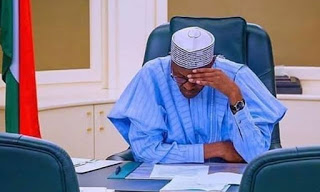Adefemola Akintade Nigeria and other sub-saharan nations have lost over $1 trillion to corruption, states a report by Commonwealth Afric...
Adefemola Akintade
Nigeria and other sub-saharan nations have lost over $1
trillion to corruption, states a report by Commonwealth Africa.
This was disclosed at the recent five-day regional
conference of heads of anti-corruption agencies organised by Commonwealth
Africa and held in Kigali, Rwanda.
“The Africa Growth Initiative notes that sub-saharan Africa
received nearly $2 trillion in foreign direct investment (FDI) and ODA between
1980 and 2018, but lost more than $1 trillion to illicit financial outflows,”
noted the report.
The report further disclosed that the continent’s illicit
outflows rose to $1.3 trillion, sufficient to lift over 1.4 billion persons out
of poverty, had the funds been utilised judiciously.
“When looking at the whole of Africa, that figure rises to
$1.3 trillion – enough money that could lift the 1.4 billion people living on
less than $1.25 per day out of poverty,” it added.
While addressing delegates of the 19-member states,
Commonwealth’s secretary-general Patricia Scotland emphasised the need to
tackle corruption as a top priority, noting it would remain a hindrance to the
economic growth and social progress of nations, if left unchecked.
According to the secretary-general, co-operation and
collaboration between government agencies and member countries are the keys to
ending systemic corruption.
“I am eternally optimistic that, if we work together, and
work well, Commonwealth Africa – and the Commonwealth as a whole – will sweep
corruption aside and create the lasting, positive space for sustainable
development to thrive, and for people everywhere to flourish,” explained the
secretary-general in her opening address.
The conference themed ‘Combating Corruption for Good
Governance and Sustainable Development in Africa’, is expected to proffer
solutions to tackle the root causes of corruption in member countries.
Although Nigerian President Muhammadu Buhari promised to
fight corruption when he assumed office in 2015, official corruption has
continued to weaken the country’s economic and political stability.
Meanwhile, a similar report by the World Bank stated that
Nigeria’s economy under Mr Buhari’s regime was worse than 10 years ago, amid
multiple recessions that hit the country in 2016 and 2020.
The nation which can no longer fund its own budget has
resorted to borrowing heavily from other nations to finance its projects.
Billions of recovered funds from former dictator Sani Abacha
have been reportedly re-looted, further sinking the nation’s regressing economy
into lower depths.
The U.S. government in its 2022 country report on Human
Rights Practices accused the Economic and Financial Crimes Commission (EFCC)
and Independent Corrupt Practices Commission (ICPC) of abandoning high-profile
corruption cases to focus on prosecuting small-time fraudsters, giving credence
to hearsays that corruption ran rife in the nation’s anti-corruption units.









No comments